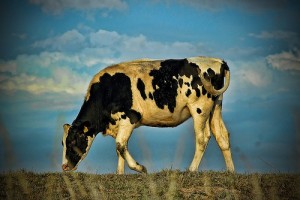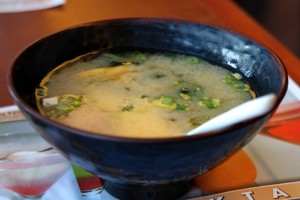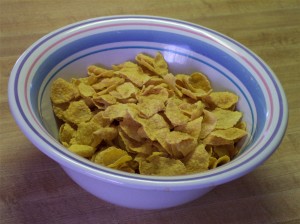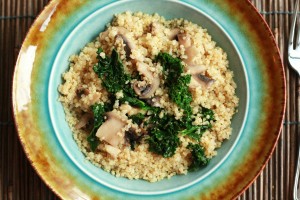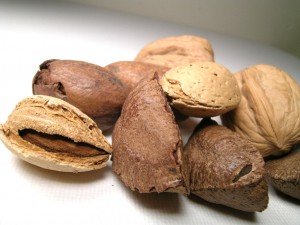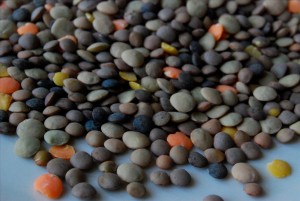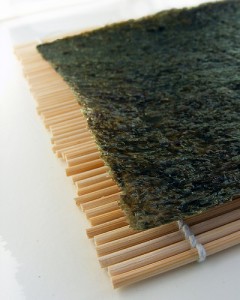What are some meatless meals that have protein and vitamin B12? Here are some nutritious food choices for vegans.
Are you a committed vegan?
Anybody who has ever cried during Walt Disney’s Bambi has probably flirted with the idea of converting to veganism, a diet which mindfully excludes eating, wearing or utilizing any product which is derived through the slaughter of animals.
Who hasn’t fantasized about growing their own organic vegetables, tossing out their leather sneakers in favor of a pair of cruelty-free recycled-material loafers, and living off a steady diet of barbecued tofu sandwiches, mixed bean sprouts and Matcha green tea?
Many of us have tried being vegetarian for at least a day; some of us for even longer.
What eventually makes or breaks your commitment to the vegan lifestyle is the inevitable need to maintain the same nutritional balance that you had back in your meat-eating days…
Namely, you need to replace the iron, vitamin B12 and protein that you used to get from meat, fish, milk, and eggs, and find new plant-based foods which meet the same nutritional needs.
On Becoming Vegan: Avoiding Vitamin B12 Deficiency and Others
Vitamin B12 and veganism
Vegans who neglect to include sufficient amounts of vitamins such as B12 in their diets often end up with vitamin B12 deficiency, chronic fatigue, and increased risk for heart attack and severe neurological damage.
A good preventative measure is to take regular supplementation, such as iron pills and a vitamin B12, in addition to including the following 6 vegetarian-based nutrients:
#1 Vegan Protein: Beans, soy products, nuts and seeds
The dilemma about not getting enough protein in a vegan diet has nothing to do with availability. Most foods, vegan or non-vegan, have adequate amounts of protein in them.
Vegetables, beans, grains and nuts are rich in protein. Particularly healthy protein sources are almond butters, tempeh (mock meat), quinoa, lentils and kidney beans.
But in order to obtain enough amino acids, you must include a variety of protein foods in your diet, as none (except for the soy products) are single whole sources of complete protein.
#2 Vegan Vitamin B12: Soy milk, fortified cereals
A majority of the foods which are rich in vitamin B12 are animal-based: lean beef, chicken, organ meats, eggs, fish and dairy products.
Don’t skimp on vitamin B12; your body needs it to produce red blood cells, maintain the nervous system and convert food into energy.
Vegan milk substitutes often have vitamin B12 added in order to prevent vitamin B12 deficiency. But don’t become too complacent; B12 levels can plummet steadily without your realizing it. Make certain your doctor gives you a vitamin B12 blood screening at every checkup, and become familiar with the basic symptoms of vitamin B12 deficiency.
B12 Deficiency: Don’t Ignore the Symptoms
#3 Vegan Iron: Dark leafy greens, beans, raisins and fortified breads
Iron is essential for collecting oxygen produced in our lungs and distributing it to the rest of the body.
Of all the vitamin deficiencies, the most common is caused by low iron levels, affecting up to 20 percent of women. Iron sources obtained from meat are the most easily digested, but vegan sources are available.
The highest sources of iron in the vegan diet include:
- soybeans;
- blackstrap molasses;
- lentils;
- spinach;
- quinoa.
#4 Vegan Omega-3 fatty acids: Walnuts, flaxseed, wheat germ, supplements
The richest sources of omega-3’s are in seafood, particularly mackerel, trout and tuna.
Omega-3 fatty acids are commonly derived from Linolenic Acid, and are vital for brain functioning, boosting the immune system, promoting heart health and imparting general feelings of well-being.
Vegan foods which are high in omega-3 fatty acids are:
- flax, soy and canola oils;
- hemp, sesame and pumpkin seeds;
- nuts, such as walnuts and Brazil nuts;
- wheat germ and wheat germ oil
#5 Vegan Zinc: Legumes, seeds, grains, brewer’s yeast and green veggies
Zinc is important for helping our bodies fight infections, produce new cells and utilize protein, carbohydrates and fats.
Foods which provide the most zinc nutrients are shellfish, meat and milk, but there are many plant-based sources as well.
To get enough zinc in a vegetarian diet, include plenty of:
- whole grains, including cereals and breads made with whole grains;
- nuts and seeds, especially pumpkin seeds;
- brewer’s yeast;
- beans and lentils;
- wheat germ;
- dark green vegetables
#6 Vegan Iodine: Iodized salt, seaweed
Vegetarians are more likely to not consume enough iodine, as some or the richest sources of iodine include many seafoods.
According to one study, 80% of vegans and 25% of vegetarians do not consume sufficient amounts of iodine.
Make a point of using iodized salts, and try incorporating toasted seaweed into your diet. Or better yet, learn how to make vegan sushi, complete with nori sheets, avocado, cucumber slices and compressed tofu.
Also read:
Vegan Dieters at Risk for Cardiovascular Disease, After All
B12 Deficiency can really Get on your Nerves
Natalie Portman Chooses B12 over Veganism
Sources:
http://www.huffingtonpost.com/eatingwell/foods-to-eat-if-skipping-meat_b_861059.html
http://www.marksdailyapple.com/top-ten-protein-sources/
http://www.vrg.org/nutrition/iron.htm
http://www.savvyvegetarian.com/articles/omega-3-vegetarians-vegans.php


